Since ancient times, the mountain consciousness has dominated the spiritual life of the Vietnamese people. The explanation for this is not simple and quite long, but it is a real phenomenon, specifically expressed in literature.

My Son Sanctuary in spring in the mountains of Quang Nam - Photo: PXD
According to the famous legend “Son Tinh-Thuy Tinh”, in the important matter of choosing a son-in-law, King Hung also challenged the two “candidates” Son Tinh and Thuy Tinh with gifts: 9-tusked elephant, 9-spurred chicken, 9-red-haired horse, whoever brings all of them and arrives first, the king will marry the princess. Obviously, these are animals of the mountains and forests, the advantage naturally belongs to the Mountain God/Son Tinh and Thuy Tinh lost, so he was extremely angry and caused a flood to demand the beauty back and also the fairness in the dowry.
In the fairy tale “The Fairy Gourd” explains the origin of the ethnic brothers in our country from the same root, from the gourd often hanging on the kitchen shelf, a very familiar image in the daily life of the highland people. That is a typical example among many examples in folk literature.
For example, in folk songs from ancient times: "The mountains are so high that they cannot be seen/The mountains block the sun so the loved one cannot be seen"; "If we love each other, we will climb any mountain/Wave any river, cross any pass"...
In the epic poem Dam San, the majestic and sacred mountains and forests are not only places that need brave warriors to conquer, places that show the aspirations, strength and bravery of men, but also a mirror of nature for women to look into. Natural beauty has become the aesthetic standard of women in the Central Highlands. Please listen: “She walked slowly, her body as graceful as the branches of a blo tree full of fruit, as supple as the branches on the treetops. She walked like a kite flying, a phoenix gliding, like gently flowing water...” or in another passage: “She walked lightly like an elephant beating its trunk, walking silently like a fish swimming underwater. Her skin was as white as a gourd flower. Her hair was as soft as a waterfall, as black as a horse’s tail, as smooth as a cat’s fur...”

The Great Fire of the Forest - Photo: TRINH HOANG TAN
The modern era of the resistance war against the French in the Northwest highlands is vividly recreated in the story "A Phu's Wife" by writer To Hoai, while the indomitable Central Highlands is brilliantly reflected in the novel "The Country Rises Up" by Nguyen Ngoc.
During the resistance war against the US, Thu Bon's "Epic of the Cho Rao Bird" about the resilient Central Highlands became a widespread and inspiring literary phenomenon at that time. It was later included in textbooks for students. The epic poem glorifies the indomitable spirit of the Central Highlands and the close solidarity between the people of the lowlands and the people of the highlands in the war to defend the country. They were always together even in prison: "Hung and Rin, two comrades/Two birds locked in a cage/Their whole lives together/Two streams flowing together to one river".
Even when they cried, they were not tears of weakness, but of deep love, of passionate humanity, of sacred affection for the beloved village: “Y Rin cried, the first time Rin cried/Tears fell drop by drop/Hung moved closer to his friend/Leaning into his ear, whispering each word; “Rin, tomorrow the sky will be bright/There is a bird chirping in front of the porch/You told the bird to tell the girl/All our feelings”; Have you ever been angry for a long time in your heart/A comrade of yours/Why did you have to say the things you wanted to say/To two comrades who were about to sacrifice...”. Their sacrifice was never in vain, as President Ho Chi Minh said, the blood and bones of those who sacrificed their lives for the country “blossomed independence, bore the fruit of freedom”.

Road to La Lay International Border Gate - Photo: TN
Following the writers who wrote about the mountains and forests, including the Central Highlands, Trung Trung Dinh is a writer with many significant contributions. He has many realistic and vivid prose works about the Central Highlands, including the novel “Lost in the Forest” (1999) which caused a stir, won the highest prize in the novel contest of the Vietnam Writers Association and was awarded the State Prize in 2007.
The novel tells the story of a soldier named Binh who came from the North to the South to fight the Americans and dreamed of becoming a brave man. Before he could fight any real battles, he got lost in the forest and was taken in by the highlanders.
He went from one surprise to another when approaching the people of the Central Highlands. He was conquered not only by the vast and mysterious wilderness but also the more he learned, the more he loved the unique culture and customs of this place, especially the soul and character of the Central Highlands people. A romantic, poetic scene, rich in impressions through the feelings of the main character, a soldier named Binh "Somewhere far away, it seems like someone is singing.
The voice was so sweet that I felt as if I were flying. My head was resting on the woman's lap. She was blowing the zither... The sound flickered lightly like a confession coming from deep within the human mind. It vibrated and wavered behind the very sweet voice with a melody so soft it touched the heart.
That is also the value of mountain consciousness in the literature of yesterday, and even today and tomorrow, always opening a new page of life, growing like the bustling movement of things inviting spring to all species.
Pham Xuan Dung
Source



![[Photo] Cutting hills to make way for people to travel on route 14E that suffered landslides](https://vphoto.vietnam.vn/thumb/1200x675/vietnam/resource/IMAGE/2025/11/08/1762599969318_ndo_br_thiet-ke-chua-co-ten-2025-11-08t154639923-png.webp)








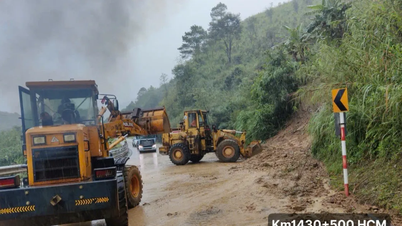

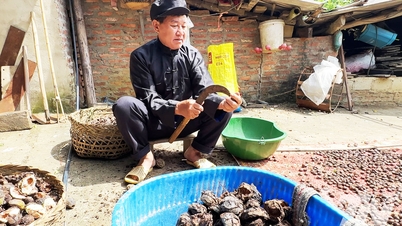

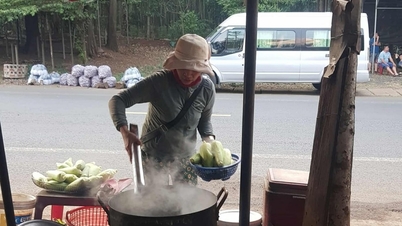









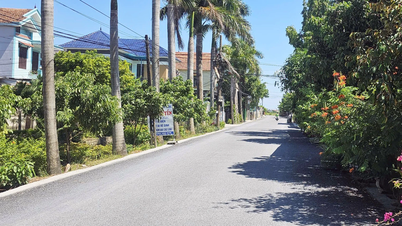

















![[Video] Hue Monuments reopen to welcome visitors](https://vphoto.vietnam.vn/thumb/402x226/vietnam/resource/IMAGE/2025/11/05/1762301089171_dung01-05-43-09still013-jpg.webp)












































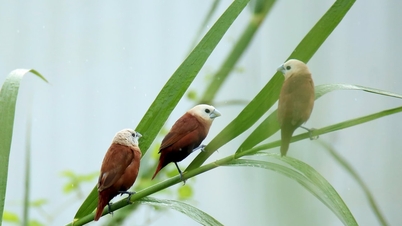





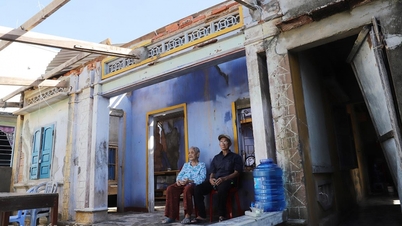



















Comment (0)